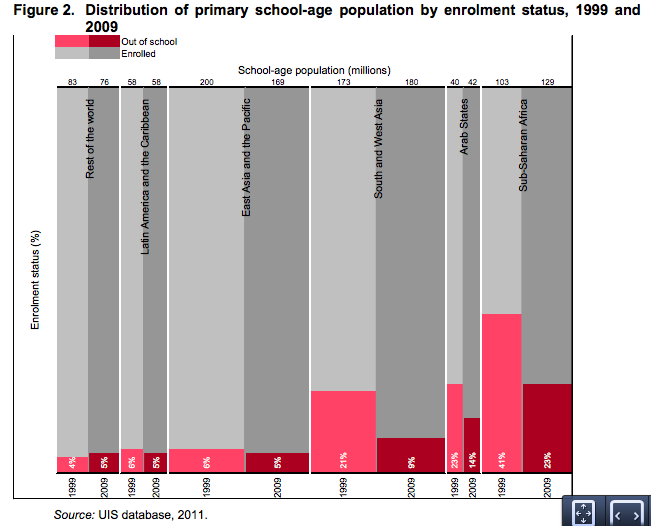
© UNESCO/Susana Sam-Vargas -The Director-General of UNESCO Irina Bokova visiting the Escuela Grecia. Presentation of the Ceibal Plan – one laptop per child. Uruguay, September 2012
On 13 September 2012, the Director-General of UNESCO, Irina Bokova kicked off her official visit to Uruguay at the Escuela Grecia in Montevideo. She was accompanied by the Minister of Education and Culture Mr. Ricardo Ehrlich, Vice-Minister of Education and Culture, President of the National Commission of Uruguay for UNESCO Mr. Oscar Gomez da Trinidade, the Ambassador of Uruguay to UNESCO Mr. Omar Mesa and the Director of UNESCO’s Office in Montevideo Mr. Jorge Grandi.
During her visit to the school, she was greeted by enthusiastic primary school students, who proudly spoke about their work using their CEIBALITA laptop computers. Addressing the school authorities and students, the Director-General said that she was honoured to be visiting the GRECIA School and to have the opportunity to learn about the Plan CEIBAL. She underlined that in the 21st century, universal access to knowledge and quality education could be accelerated with the introduction of communication and information technologies in schools.
This project has transformed the privilege of a few into a right for all — placing Uruguay as the first country in the world to cover its entire primary and early secondary education with laptops, connectivity, educational contents and training, and transforming family life for all involved.
Read the full post in UNESCO.ORG

